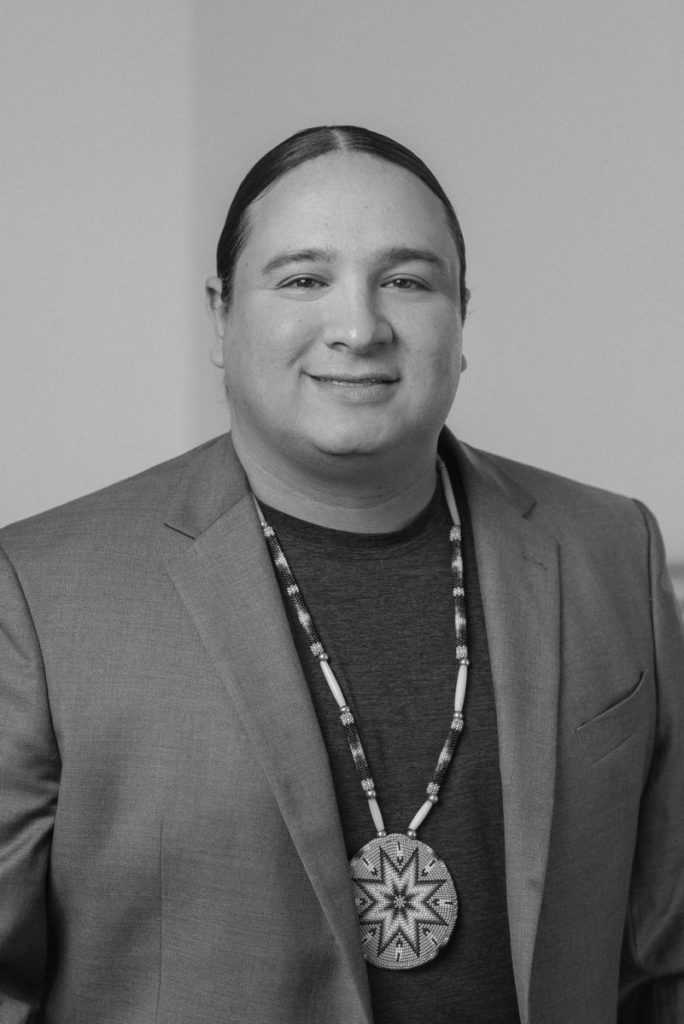Dakota Access Pipeline
NDN Collective sets example on decolonizing philanthropy

NDN Collective is an Indigenous-led organization dedicated to building Indigenous power. Through organizing, activism, philanthropy, grantmaking, capacity-building and narrative change, the organization is creating sustainable solutions on Indigenous terms.
Nick Tilsen stands within a noteworthy philanthropic circle. His organization provides grants within an Indigenous framework to Native changemakers. He recently spoke with Native nonprofit leaders on the role of Western-based philanthropy, which often leads to the “active erasure of Indigenous people.”
Tilsen, Oglala Lakota, joined grant-funding presenters and Native nonprofit participants during the 15th annual Strengthening the Circle virtual gathering April 19-22. With the ongoing global pandemic, individuals joined the event on Zoom. Group discussions centered on rethinking philanthropy from an Indigenous perspective.
Strengthening the Circle’s Native Nonprofit Leadership Program invests in Indigenous-led organizations. This allows for ideology sharing, providing resources and networks through the lens of Indigenous traditional ways of learning and governing. The conference also helps build grantee and grantor relationships.
Bonnie Sachatello-Sawyer, executive director for Hopa Mountain, serves as the managing partner of Strengthening the Circle along with four other nonprofit organizations. The event nearly doubled its attendance this year to 150 Native leaders because more people could attend virtually.

Kelli Begay, Kickapoo, Chief Strategy and Operations Officer for Native Americans in Philanthropy, joined the virtual conference as a present. The NAP includes a network of Native and non-Native nonprofits, tribal communities and foundations. “Native Americans in Philanthropy envisions a future with healthy and sustainable Native communities supported by responsive philanthropy,” Begay, Seminole and Muscogee Creek, said.
Also joining the event, Linda Tracy, western director at the Steele-Reese Foundation, said it’s important to keep conversations between funders and grantors on the forefront. She said the philanthropic process needs to be modified based on what Native communities can teach. Tracy said foundations look to nonprofits to share their stories and advocate for the resources they need.
In “Decolonizing Wealth,” Edgar Villanueva, Lumbee and a philanthropist, addresses foundation giving practices in Indian Country. “The people with the least power are those seeking funding—the field hands: begging for scraps, given no dignity and treated with no respect,” writes Villanueva.
“One step up, people of color working in philanthropy are the house slaves, because we get to be close to the power and the privilege. We benefit from our position in all kinds of ways. Different slaves behave differently once they get inside the master’s house.”
“If we want a change and shift in philanthropy, we have to create our own philanthropic structures founded in our lived experiences, knowledge and our self-determination.”
Nick Tilsen, CEO of NDN Collective.
Meanwhile, a number of foundation leaders continue to make inroads on how foundation money is distributed in Indian Country. Tilsen has taken the lead with NDN Collective to become a significant philanthropic organization serving Native people within an Indigenous framework.
NDN collective challenges colonial philanthropic practices where the rules are generally created by non-Native groups. He said it’s often difficult to secure grants for Indigenous language revitalization and climate change initiatives, two of the most culturally relevant issues in Native communities.
On average, U.S foundations delivered a scant 0.4 percent of total funding to Indigenous communities and causes from 2002 to 2016, according to a Native Americans in Philanthropy report on funding in American Indian communities.
“Indigenous people have been made invisible in society and philanthropy,” Tilsen said. “They have not prioritized Indigenous people in those areas because they don’t see us. Them not seeing us is a result of active erasure of Indigenous people.”
He said Native movements are best supported when investments occur within an Indigenized system. Otherwise, when western-centric concepts are applied to an Indigenous worldview – this can occur from Native and non-Native funding organizations — the ideologies tend to perpetuate more problems than providing solutions.
In 2020, NDN Collective provided $13.8 million in grants, including money for language and climate change initiatives. The organization aims to build a $50 million endowment to decolonize philanthropy and invest in Native change makers.
JoVonne Wagner is a Blackfeet tribal citizen majoring in Journalism at the University of Missoula, Montana. Contact her at jovonnewagner@gmail.com.A
JoVonne Wagner
Former Reporter
Location: Missoula, Montana
Spoken Languages: English
Topic Expertise: Indigenous issues; Montana
See the journalist page© Buffalo's Fire. All rights reserved.
This article is not included in our Story Share & Care selection.The content may only be reproduced with permission from the Indigenous Media Freedom Alliance. Please see our content sharing guidelines.
After some reworking, law enforcement backs newest alert system
"Our people are worth it": NCAI panel confronts epidemic of violence, long road ahead and need for unity
Reporting Excellence
Tribal elders enjoy an afternoon of games, prizes and food on the Fort Berthold Reservation
Carmen O’Leary fights to help Indigenous survivors of violence amid budget cuts







